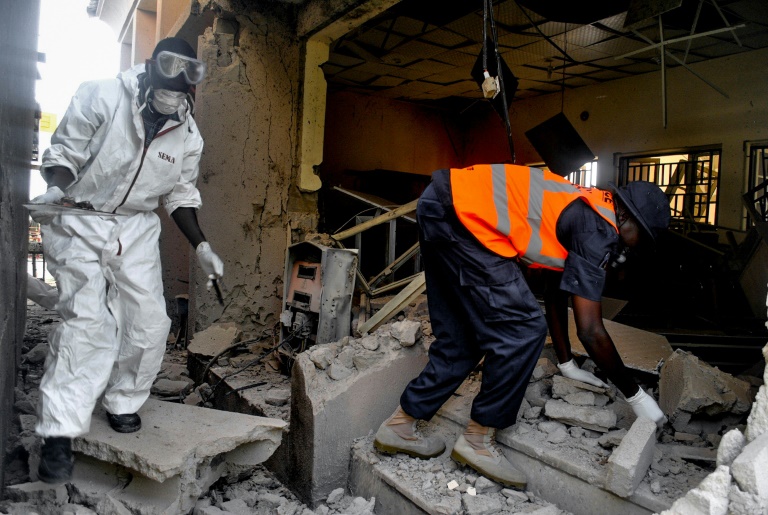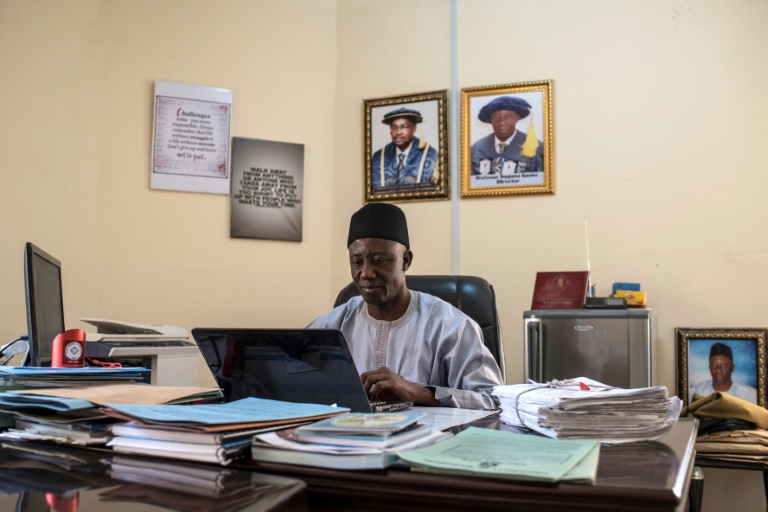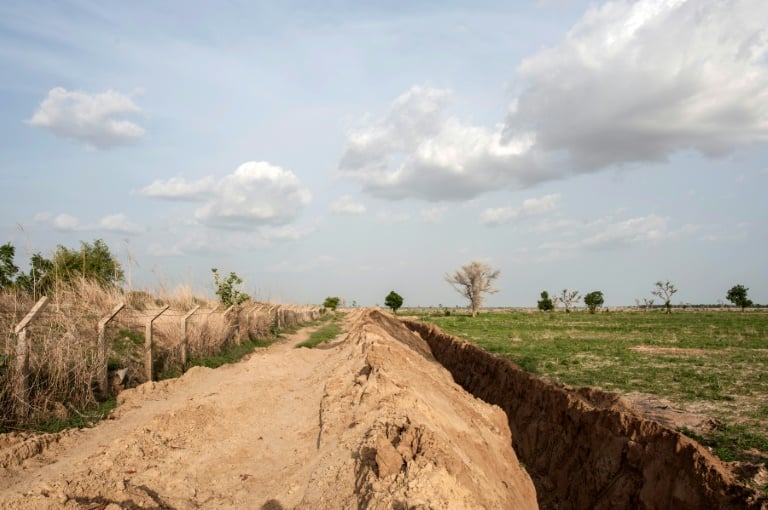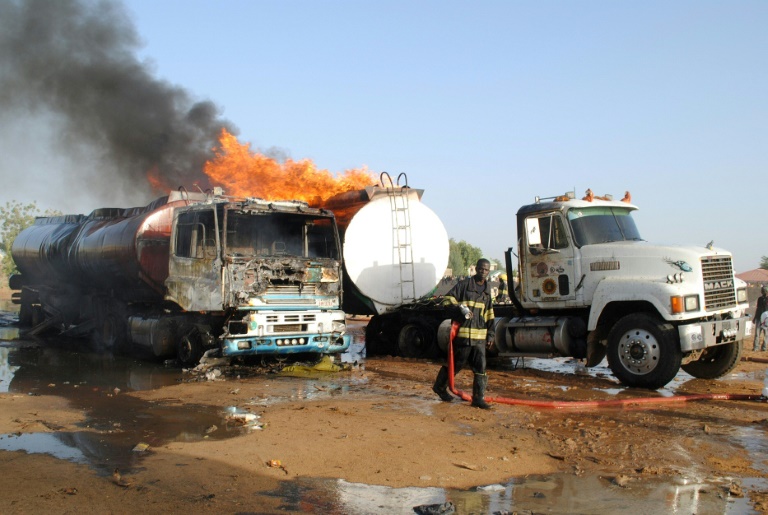Norway’s anti-apartheid role acknowledged by South African struggle veterans
About 27 kilometres (17 miles) of trenches are being dug around the institution, known locally as UNIMAID, which has since the start of the year become a main target of the Islamist militants.
From the fringes of the university campus, the silent, arid bushland of Borno state stretches out as far as the eye can see.
“Suicide bombers usually come on foot or by motorbike,” said one security guard, stepping down from an old iron watchtower overlooking the vast, 43-hectare (106-acre) site.
The eastern side of the campus is not fenced, leaving kilometres of open ground for attackers to try to get in.

Emergency personnel work at the site of a blast at the University of Maiduguri on June 26, 2017
According to AFP reporting, since January there have been at least eight suicide bomb attacks against the university, which teaches the “Western” education the jihadists despise.
But unlike most state primary and secondary schools, which were either destroyed or closed because of attacks or kidnappings, university classes have not been disrupted.
Christians and Muslims from across Nigeria have studied together since the 1970s. Nearly 45,000 students were registered last year, making it one of the biggest state-run universities in the country.
The campus itself was spared from attack until January 16.
Muhammadu Nur, a 20-year-old law student, remembered the day vividly, as he ran to the mosque near his dormitory when a loud explosion went off at morning prayers.

UNIMAID spokesman Danjuma Gambo works in his office in Maiduguri
Two students and a lecturer were killed when explosives being carried by a young girl were detonated at the entrance to the mosque.
Muhammadu’s friend, Abba, was injured and taken to hospital. He had a leg amputated a few days later.
“Everyone was in shock,” said Muhammadu.
– Call for action –
The university campus had until then been seen as a haven of peace in Maiduguri, where Boko Haram was founded in 2002 and which has been repeatedly attacked since the insurgency began in 2009.
Across the city, suicide attackers and bombs have targeted camps for those displaced by the conflict, markets, mosques and bus stations.

A trench is being dug around the University of Maiduguri in northeast Nigeria to prevent further Boko Haram suicide attacks
“It becomes a habit to see mutilated bodies, arms and legs, blood all over the place,” said Muhammadu at the university cafeteria, wringing his hands.
But fear has gradually set in and if a student’s bag is judged to be overly large, they are immediately suspected of being “one of them”, he added with a nervous laugh.
At the end of June, student associations, lecturers and non-academic staff called for help, demanding urgent measures to end what they said was the “nightmare” of continual attacks.
If their demands were not met, they threatened to strike at the start of the new term in 2017.
“It is obvious that teaching, learning and research cannot be effectively conducted in this atmosphere of fear,” they said, adding that 70 lecturers and many more students had left over the year.
– Uncertain future –
The university authorities responded equally firmly.
“The management of the university made it clear that we will not close the university,” said UNIMAID spokesman Danjuma Gambo.
“It is a symbol of advanced Western education. Closing down the university would show that the insurgents are succeeding. It’s exactly what they expect,” he added.

A petrol tanker on fire following a suicide attack in Nigeria’s Maiduguri on March 3, 2017
The governor of Borno state, Kashim Shettima, in response announced financial help of 50 million naira ($160,000, 140,000 euros) to construct a perimeter trench several metres (feet) deep.
Security checks at entrances to the campus — which had previously been relaxed because of counter-insurgency successes — were reinforced.
Army, police and civilian militia patrols were introduced day and night.
Many students, however, said they doubted whether the measures were enough, highlighting the low wages and lack of training of the people charged with protecting them.
“I have 14,000 naira monthly and I haven’t been paid for two months,” said one security guard. “I don’t want to die for Boko Haram.”
The end-of-year exams were held in June and preparations are being made for the return of the students.
Muhammadu and his friend Suleiman, who live with their lecturer parents on the campus, will graduate next year.
The Boko Haram insurgency has not only killed their classmates. It has also affected their hopes for the future in a region where the economy has ground to a halt and millions do not have enough to eat.
“Many of our friends who already graduated are unemployed now,” said Suleiman, a final-year political science undergraduate.
“We have no idea what the future brings,” he added.
Download our app